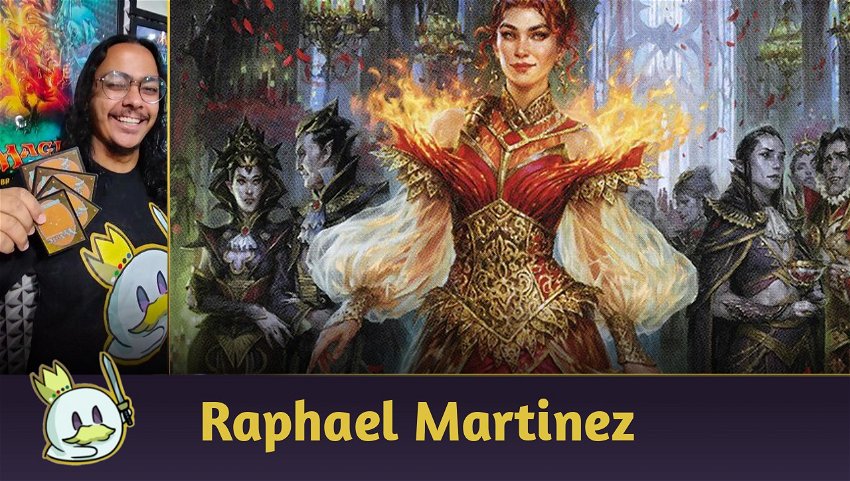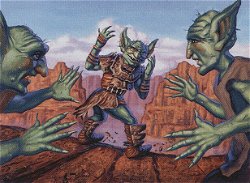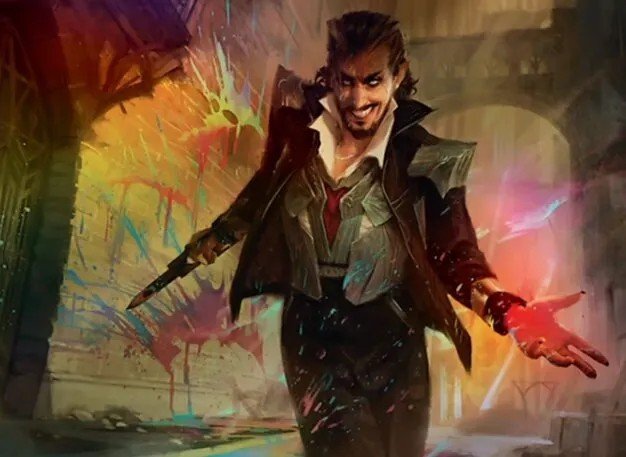About Deck
Once upon a time, in Pioneer, there was a predominance of Boros Burn, a deck that was faster and more explosive, but had a better late game thanks to Lurrus.

With Lurrus banned, there was an exploration of cards that previously didn't see as much play, such as Bonecrusher Giant and Chandra, Dressed to Kill — these cards now begin to see play, as Mono-Red Burn plays differently than Boros.
Despite still being a deck that continues with explosiveness, using damage spells, it now also has a better Late game using its card advantage cards, with Bonecrusher and Chandra, Dressed to Kill.
Mulligan and Stances
The deck we will be using was 4-0 in Preliminary, and the difference between this list and the others in the Metagame is that ours run21 lands and has only three Chandra, Dressed to Kill.
When playing Mono-Red, you should consider the three main deck strategies.

One of them is speed, where you will use your direct damage on the opponent's life, in addition to using your creatures to improve and optimize these cards and end the game quickly. Being the best line against some decks, for this quick strategy, one of the best cards we have in the deck is Eidolon of the Great Revel.

Another stance that can be adopted is sort of a Control stance, where you will use your direct damage cards to remove your opponent's creatures while pressuring their life totals. For this, there are creatures that have Prowess, such as Monastery Swiftspear and Soul-Scar Mage, which makes the opponent's creatures small (with the counters), favoring exchanges throughout combat.

The third possible strategy is to make use of Card Advantage, as it currently manages to have a good playing position against Control decks. Here you can use your high-impact cards on the board, with Chandra, Dressed to Kill and Bonecrusher Giant forcing your opponents to answer each of your cards, as they alone can finish the game quickly.
Another card that favors this strategy are utility lands such as Den of the Bugbear which creates a lot of value on the battlefield throughout the game and Ramunap Ruins, which can deal the last points of damage later on.
From these three main strategies, let's make our sideboard guide for the time being.
Sideboard vs Main Matchups
vs. Azorius Control
Against Azorius Control, we don't have to win the game on speed, but on card advantage.
Our main strategy is to try to look for a certain speed, that is, keeping hands with Monastery Swiftspear or some aggressive creature and forcing initial trades, while still managing to do some damage.
But overall, for this plan to work, you should value your other high-impact cards like Chandra, Dressed to Kill and Bonecrusher Giant. Therefore, always use other smaller cards as bait.
Whenever you get the chance, hit them with Den of the Bugbear, but remember that March of Otherworldly Light deals with it for only one mana.
Side in

Side out

Post-side we will strengthen the Card Advantage plan without losing too much speed, so we will insert 2 Roiling Vortex and 2 Chandra, Torch of Defiance.
We will remove Spikefield Hazard, which is the card that deals the least damage in the deck, and 2 Wild Slash which also end up being very irrelevant in this game, and can be replaced by cards with greater impact.
vs. Naya Winota
Against this deck, we really need our small creatures at the beginning of the game and will use the Control strategy.
For that, the removals end up serving to get the creatures out of the way while we put pressure on our opponent. In G1, we should prioritize keeping the table clean using the highest quality Burn as possible. Don't let your opponent grow at the game.
Side in

Side out

On the sideboard, we are going to insert more removals and Chandra, and with that, we improve our Burn Control plan, increasing the number of permanents in play and improving our removals. To improve this strategy, let's remove the conditional cards.
Within the post-side plane we must always keep a red mana to use Redcap Melee on the opponent's Winota always keeping the board as clean as possible.
vs. Izzet Phoenix
Against the Phoenix, the winning strategy is to be as fast as possible. So, we should greatly strengthen our Eidolon of the Great Revel, look for hands with one or two. To keep them in play longer, use your other creatures as bait while dealing as much damage as possible.
Side in

Side out

In games 2 and 3 we must strengthen our spells, improving the plan against opponent's creatures. For this, we will remove 4 Skewer the Critics and add 3 Lava Coil and 1 Damping Sphere, to impede our opponent's game plan.
A good plan is to use Lava Coil as a removal for the opponent's Thing in the Ice.
Always remember to play your prowess creatures when you have instants in hand to protect them.
vs. Lotus Combo
Against this deck, we should use the fastest hands possible. Avoid high drop hands like Chandra, Dressed to Kill and Light Up the Stage, as we need to close the game before turn 4.
The key card for this game is Eidolon of the Great Revel, so we should always try to keep a hand with at least one in the starting hand, as it prevents some ramps.
Side in

Side out

On the post-side, we will try to prevent our opponent from playing.
For this, we will add 2 Roiling Vortex and 1 Damping Sphere and remove Chandra, Dressed to Kill, which are too slow for this game.
The game plan remains the same: try to close the game as quickly as possible and use the sideboard cards as a plan to stop the opponent from going for the combo.
vs. Mono-Red Burn
This is a game that, contrary to popular belief, is not fast – but a game of attrition. The two players will try to remove each other's creatures, making this greatly strengthen the Card Advantage plan. With that in mind, Bonecrusher Giant and Chandra, Dressed to Kill turn out to be key cards.
In Game 1, leverage your Eidolon to do the most damage to your opponent and do the least to yourself, so only cast it when you have an advantageous board.
Side in

Side out

For this matchup, we will insert 3 Redcap Melee and 2 Chandra, Torch of Defiance, further strengthening our attrition plan using our removals. Chandra, Torch of Defiance comes in the card advantage proposal because in addition to being a good removal, she can still give us extra cards — despite costing 4 mana.
To maintain our plan, we will remove 1 Mountain, as we want to generate as much value as possible from our cards, with flood being a major villain in the game.
We'll take out 2 Wild Slash and 2 Skewer the Critics to keep our card plan that doesn't rely too much on the opponent's plays, as we trade 2 damage to the opponent's life total for 4 damage to their creatures.
Gameplay
Conclusion
That's all for today! If you have any questions about the deck, I'm available in the comments.
Until the next time!















— تعليقات 0
, ردود الفعل 1
كن أول من يعلق